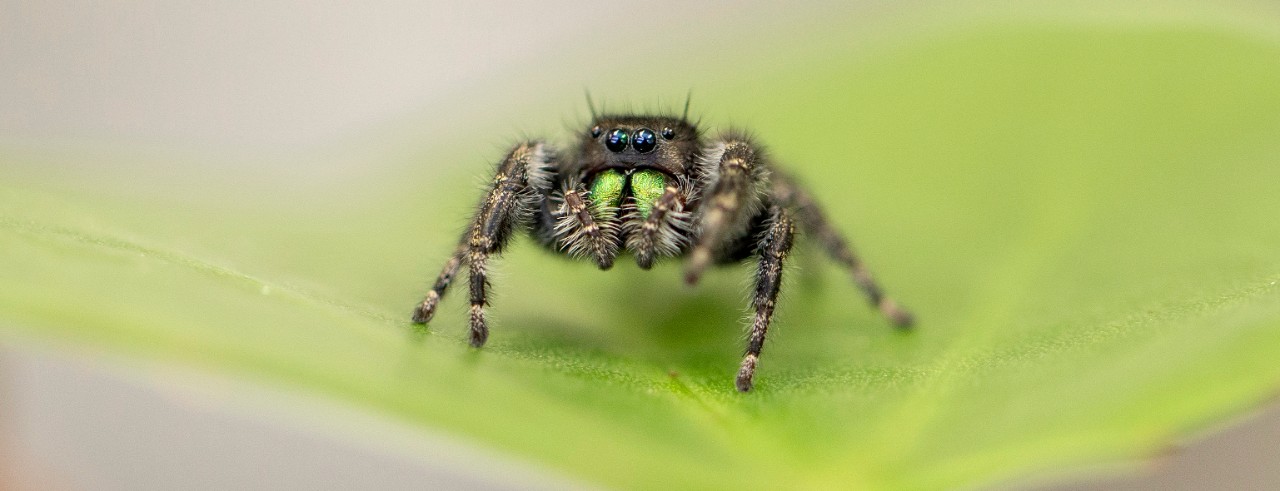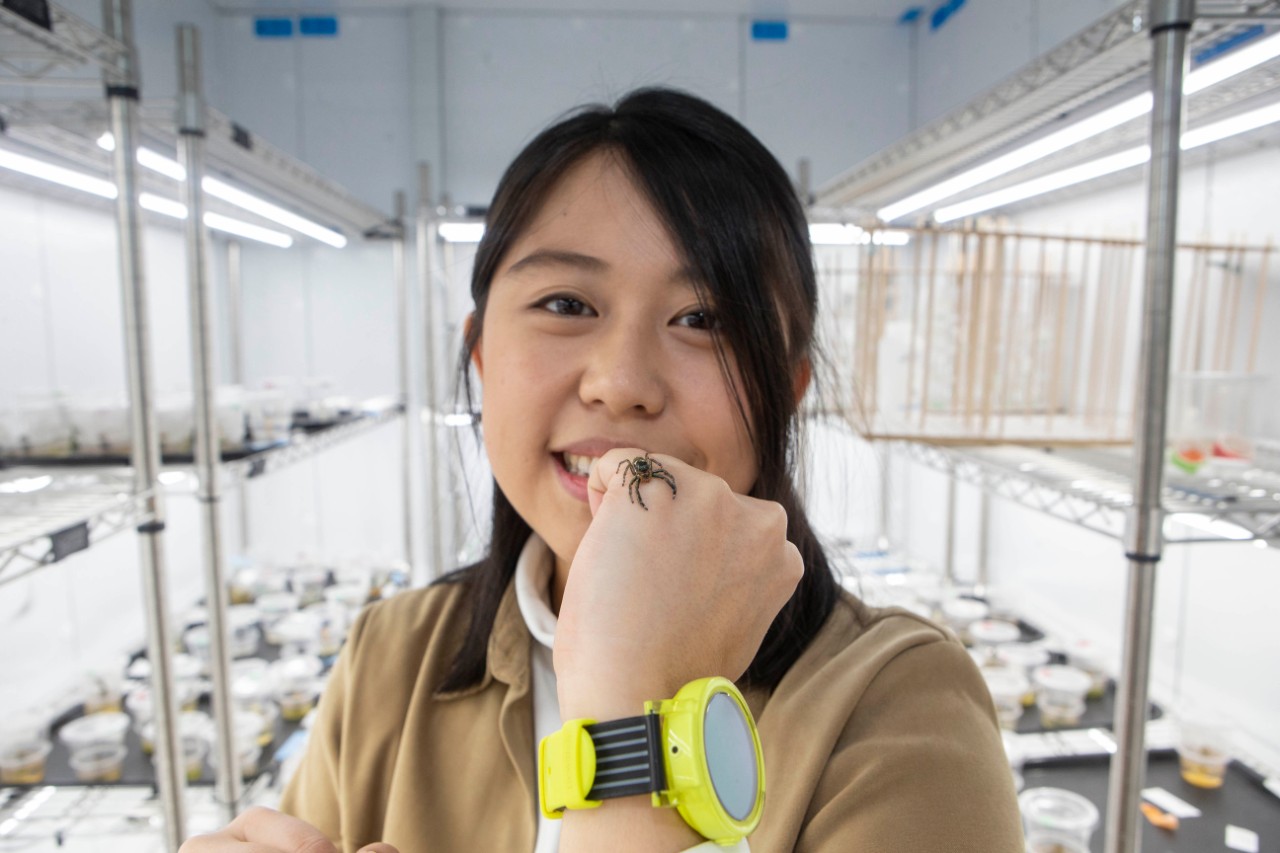
CityBeat: UC research finds spiders might recognize faces
UC's Morehouse Lab is unlocking secrets of spider vision and recognition
CityBeat profiled the work of students in the University of Cincinnati's Morehouse Lab who are exploring the vision and cognition of jumping spiders.
UC doctoral student Jenny Sung is examining if female paradise jumping spiders use the male's colorful face designs to choose a good mate.
The spiders are nearly imperceptibly small but magnification shows their impressive, bold facial markings.
Sung's research was inspired in part by her fascination with uniquely painted Peking Opera Masks, which help communicate motivation, emotion and pathos to the audience.
UC associate professor Nathan Morehouse said his team's work suggests spiders pay attention to faces.
“There is this interesting thread between our focus on how much we care about faces as humans and how many decisions we make based on faces and this world of jumping spiders,” Morehouse told CityBeat. “But we always have to keep in mind that their brains — their cognition — everything about the situation is different. It's this interesting exploration of the sameness and difference of these two worlds.”

UC doctoral student Jenny Sung holds up a jumping spider in UC's biology lab. Photo/Joseph Fuqua II/UC Creative + Brand
Related Stories
PHOTOS: 2025 DAAP Fashion Show
May 9, 2025
Over 900 people attended DAAPFASH25, a fashion show that highlights the collections of the fashion design Class of 2025. The show is now in its 72nd year.
Preparing students for artificial intelligence in education
May 8, 2025
Laurah Turner, PhD, associate dean for artificial intelligence and educational informatics at the University of Cincinnati's College of Medicine, recently joined the For The Love of EdTech podcast to discuss the usage of personalized learning and AI coaches to enhance educational experiences.
UC lab-on-a-chip devices take public health into home
May 8, 2025
University of Cincinnati engineers created a new device to help doctors diagnose depression and anxiety. The “lab-on-a-chip” device measures the stress hormone cortisol from a patient’s saliva. Knowing if a patient has elevated stress hormones can provide useful diagnostic information even if patients do not report feelings of anxiety, stress or depression in a standard mental health questionnaire.
